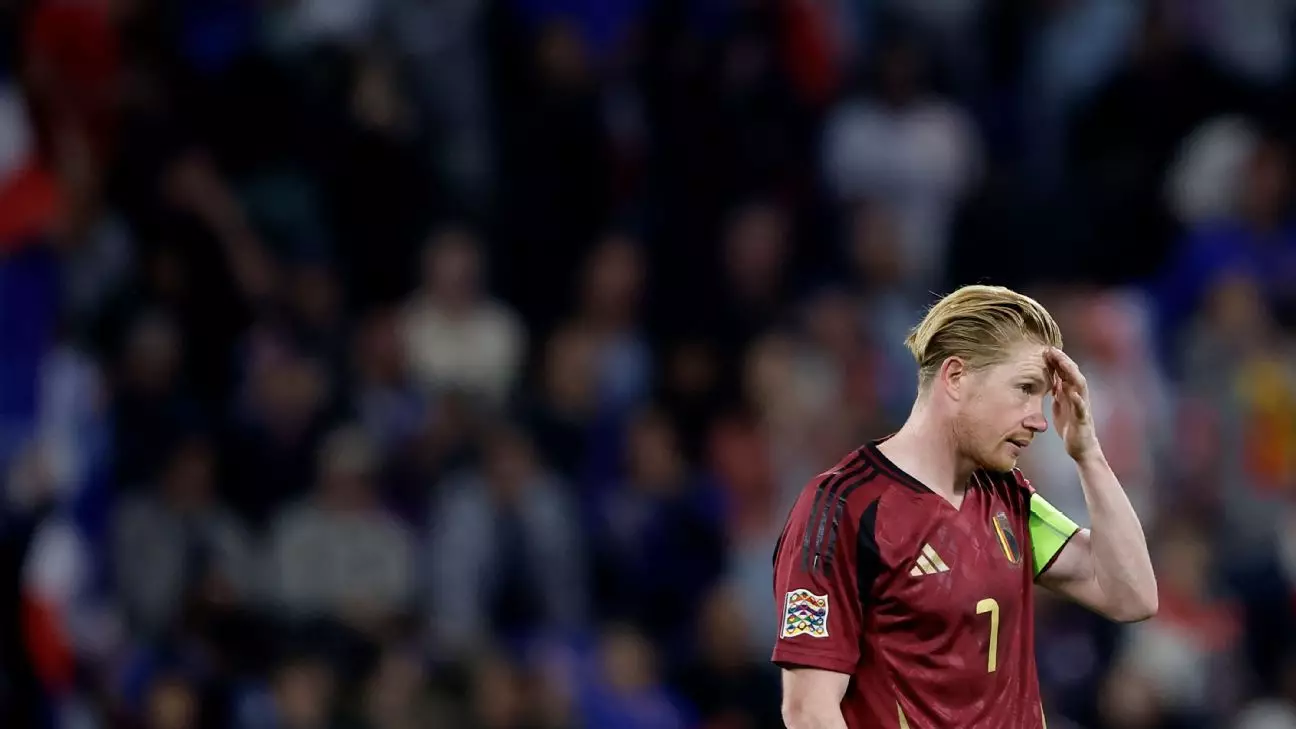Following Belgium’s disappointing 2-0 defeat to France in a recent Nations League encounter, team captain Kevin De Bruyne did not hold back in expressing his discontent. This was not merely a moment of disappointment; it was a boiling over of frustration that underlines the challenges facing a once dominant Belgian side. De Bruyne’s emotional response sheds light on the intricate dynamics of teamwork, performance standards, and leadership in professional sports.
The match itself saw Belgium falter against a rejuvenated French team that had recently suffered a setback against Italy. De Bruyne’s comments reflected a sense of urgency; he indicated that numerous aspects of the team’s performance were lacking. Drawing from his experience, he acknowledged the team’s decline since reaching the World Cup semifinals in 2018. “I can accept that we’re not as good as in 2018,” he stated, signaling an understanding of the evolving nature of competitive sports. However, his dissatisfaction with the current state of the squad was palpable. He refrained from publicly dissecting the game, illustrating the fragility of team morale and dynamics.
Leadership in any team, especially in high-stakes competitions, requires not just tactical knowledge but emotional intelligence. De Bruyne’s fierce competitiveness and desire for excellence are admirable traits, yet they can also lead to tense moments within the squad. His assertion that “if you don’t even do that, it’s over,” underscores a critical turning point for the Belgian national team. How the players respond to such high expectations will shape their future prospects. De Bruyne’s remarks also highlighted a disconnect in the formation and strategy employed—specifically, that a defensive setup with many players at the back can hinder offensive creativity and fluidity.
Domenico Tedesco, the team’s coach, recognized and empathized with De Bruyne’s frustrations. Acknowledging the captain’s emotional state shows an understanding of the human element involved in coaching. Balancing the pressures of performance with team morale is paramount, and Tedesco’s awareness of this delicate balance could be crucial moving forward. He must find a way to channel De Bruyne’s competitive fire into constructive outcomes for the team rather than allowing it to devolve into frustration.
As Belgium navigates this transitional phase, the primary challenge will be to align individual ambitions with collective goals. De Bruyne, as a leader, must inspire rather than just demand. The team’s ability to adapt, regroup, and emerge stronger from this adversity will determine their trajectory in upcoming competitions. With the World Cup and European Championships looming, the Belgian squad must harness their talent and experience while fostering a supportive and motivated environment. The journey ahead will require not only skill but resilience and unity to reclaim their status on the international stage.


Leave a Reply